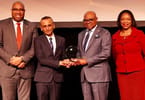The trade group Airlines for America (A4A) recently published a chart that depicts a rate of airline industry job growth that is more than double that of the overall US economy; however, there is much opportunity for additional employment growth. The chart also provides an opportunity to shine a bright light on the corporate cultures at American Airlines, Delta Air Lines and United Airlines (Big Three) as those airlines seek to frustrate competitors, consumers and their regulator, the US Department of Transportation (DOT). There are alternative paths forward.
PLENTY OF ROOM FOR JOB GROWTH
For sure, US airline industry employment growth could be even greater as could overall travel and tourism job creation. Importantly, airlines cannot measure lost demand and revenue from disillusioned leisure travelers who have given up on flying or business travelers who have increased the number of miles that they are willing to drive their cars to avoid airlines or those high-yield business travelers who have found ways to reduce their number of monthly trips.
In a recent Skytrax global customer satisfaction survey, Delta Air Lines secured the 35th place, with United Airlines and American Airlines at places 68 and 77 respectively. The 3 once pioneering and currently largest revenue-generating airlines in the world cannot place in the top 10. Not even one of them! Interestingly, United Airlines’ CEO told a recent industry gathering that his airline’s mission is to have the “best customer service and be the best airline in the world” and that primarily, “people want frequency, reliability and cost.”
Some 85% of United Airlines’ customers travel with them at most once a year – and yet those customers are seeking frequency – seriously! If a mega airline CEO does not know that flight frequency rarely enters the mind of a leisure traveler, would he possibly understand and empathize with the dismay that an infrequent traveler might have who finds that he barely fits into an assigned seat?
Importantly, in its recent worldwide airline customer survey results, Skytrax named Emirates Airline the best airline in the world and Qatar Airways and Etihad Airways 2nd and 6th, respectively. Setting aside the best practices that could be adopted by the Big Three to help win back those lost customers, if the Big Three want to improve, and if United Airlines ever wants to achieve its stated mission to leap forward 67 positions and displace Emirates Airline as the best airline in the world, then there is a more fundamental problem that the Big Three must first address.
BROKEN CULTURES
As sure as the sun rises in the east, frontline employees cannot ever be expected to deliver a consistent and superior guest-centered air travel experience when corporate cultures are broken by the now routinely displayed hubris of C-suite airline executives.
By no stretch can one imagine the culture at Emirates Airline, for example, allowing the now-famous Doctor Dao to be violently dragged unconscious and bleeding down an airplane isle while shocked guests look on. Corporate culture affects every little thing and it flows from the top of an organization. Good culture begets good strategy that begets good results.
If the cultures are not turned around at the Big Three, they will never break into the top 10 of the Skytrax, or any other international survey results, let alone steal the “best airline in the world” title, as is the stated aspiration of United Airlines.
BEYOND POOR CUSTOMER SERVICE
The Big Three have secured their antitrust immunized joint ventures and have massively consolidated the US airline industry. In doing so, the Big Three have acquired greatly increased political, economic and market powers and have wasted no time or opportunity to arrogantly use those powers against their competitors, regulator and customers. Their broken and worsening corporate cultures have led not only to quantifiably poor customer experiences but also to jointly coordinated destructive marketplace initiatives and shameful public policy abuses.
Consider that the Big Three have:
a. launched a scorched earth political war on Emirates Airline, Etihad Airways and Qatar Airways (Gulf Carriers), Norwegian Air International and Norwegian UK to close US markets to competition;
b. put 25 years of successful US Open Skies policy at risk without regard for the interests of air cargo carriers and their dependence upon Open Skies, or for the concerns of airports and numerous other travel and tourism industry stakeholders;
c. sued DOT in federal district court to defy them over a consumer-protection advertising rule and then drafted legislation for Congress to further undermine them;
d. withheld product and pricing information (and are continuing to do so) from online and traditional travel agents and metasearch firms such that in the near term efficient comparison shopping and transparency for consumers have been significantly diminished and in the longer term could be eliminated; and
e. threatened journalists who report on the travel industry by complaining about them to editors and producers at major media outlets – and at times threatening to pull advertising – when anything negative is reported about them.
When 11 airlines controlled 80% of the domestic US market – now 4 – those behaviors would have had marketplace consequences and, as such, would not have been allowed to succeed.
A CLAIM CONTRADICTED
The A4A chart shows an impressive rate of airline industry job growth, which begs the question of how the Big Three could claim harm from Gulf Carrier entry into US markets? Indeed, the Big Three cannot identify one lost aviation job due to such entry. For example, Delta Air Lines and United Airlines pulled aircraft from the Atlanta-Dubai and Washington Dulles-Dubai markets and redeployed them to more profitable markets with no loss of crew jobs despite innuendo to the contrary.
Airline unions should use this most prosperous period for their industry to examine jobs lost due to outsourcing of maintenance and flying, and take up the cause of outsourced airport service workers – who are integral to improving the customer experience – and who are earning poverty wages and on public assistance while the Big Three enjoy record-breaking profits. Unions should be concerned over the impact of abysmal customer service levels on jobs.
Instead of wasting member dues and time and attention on a disastrous political campaign against the Gulf Carriers, union leaders should consider funding an in-depth study that measures and models the lost business from widespread poor customer service and what it would take for the industry to win back those who have reduced or stopped flying. The study might also quantify the lost jobs over the past 5 or so years due to the outsourcing of coveted crew jobs on international routes to joint venture partners.
In the short-term, higher ticket prices from the government protection being demanded by the Big Three might enable union leaders to claim credit for endeavoring to prop up profits and enhanced job security. Over time, however, union members’ jobs could easily become destabilized by such protectionism as calls increase for Open Skies cabotage rights(*) and concerns escalate over the public-interest benefits and efficacy of highly profitable but increasingly anti-consumer antitrust immunized joint ventures.
ALTERNATIVE PATHS FORWARD
Union leaders and their members should be worried about the negative implications of Big Three efforts to increase profits by reducing product and pricing transparency; blocking airline new entry; and giving lip service to improved customer service. Taken together, such a strategy can over time lead to a declining industry that few want a career in and to government intervention that employees and management will not benefit from.
Alternatively, as Southwest Airlines, JetBlue, Alaska Airlines, Emirates Airline and others have proven, when consumers have complete and accurate information they trust the system and buy more. When consumers are treated as guests within a healthy culture they feel respected and buy more. When competitive new entry is unencumbered, consumers enjoy new choices, innovative services and more affordable airfares, and buy more. Taken together, the industry grows and its long-term prospects for financial stability and sustainable job growth are made more certain.






















